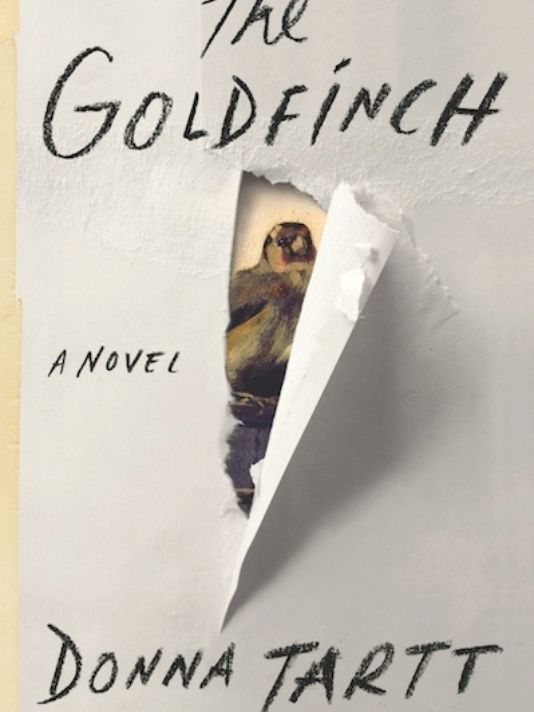
There’s something dangerous in the “The Goldfinch” — and not just the “high stakes” anxiety that pervades its story. Last year the novel won the Pulitzer Prize, along with a pile of rave reviews from numerous book reviewers (including Stephen King) — but it’s also provoked a high-stakes controversy. According to Vanity Fair, the producers of The Hunger Games are already making a movie (or possibly a TV series) based on the novel. But the magazine also points out that despite its glowing accolades, the book has also received “some of the severest pans in memory from the country’s most important critics and sparked a full-on debate in which the naysayers believe that nothing less is at stake than the future of reading itself!”
For example, The New Yorker wasn’t just unimpressed with The Goldfinch; they argued “Its tone, language, and story belong in children’s literature.” The London Review of Books also complained that the novel was a children’s book for grown-ups, and The New York Review of Books harped on cliches which somehow slipped past the editors, as well as sections which were “bombastic, overwritten, marred by baffling turns of phrase.” Their ultimately question? “Doesn’t anyone care how something is written anymore?”
And The Paris Review was even more blunt, arguing that the novel “doesn’t undo any cliches—it deals in them.” There may have been a gentile literary “patina” coating the novel, but underneath it all was a shoddy work of fiction. So why all the acclaim? “Nowadays, even The New York Times Book Review is afraid to say when a popular book is crap.”
Part of the excitement comes from the fact that author Donna Tartt only releases a new novel once each decade – and she already has a high reputation. I’ve often wondered if that subtly influence all reviewers — of movies, books, and even music. If an artist has created something great, and then they’ve released something else, there’s a buzz, an anticipation, a wave of excitement. It seems like there’s an unspoken pressure not to stop the fun — not to be that one killjoy who blurts out “It’s not as good as what came before…”
Vanity Fair had some sympathy for the editor of the highbrow Paris Review, “who struggles to keep strong literary voices alive and robust, [and] sees a book like The Goldfinch standing in the way.” They tracked down the critical editor to pin down what exactly was the danger of the book’s popularity, and got a very specific response. “What worries me is that people who read only one or two books a year will plunk down their money for The Goldfinch, and read it, and tell themselves they like it, but deep down will be profoundly bored, because they aren’t children, and will quietly give up on the whole enterprise when, in fact, fiction — realistic fiction, old or new — is as alive and gripping as it’s ever been.”
But maybe the last word comes from Jay McInerney. The author of Bright Lights, Big City made his own splashy debut years ago, and 20 decades ago had recognized when the same thing was happening to Donna Tartt. The two authors became friends, and when Vanity Fair wrote their article Tartt was unavailable for comment — but McInerney wasn’t. And he insisted that his friend hadn’t even read any of the reviews — not the negative ones, and not the glowingly positive ones, either. So he’s absolutely certain how she’s reacting to this new controversy over her book’s popularity and the negative reviews it’s provoked.
He says she’s not “losing any sleep” over them.
For a shortcut to the book’s page on Amazon, point your browser to this URL.Â